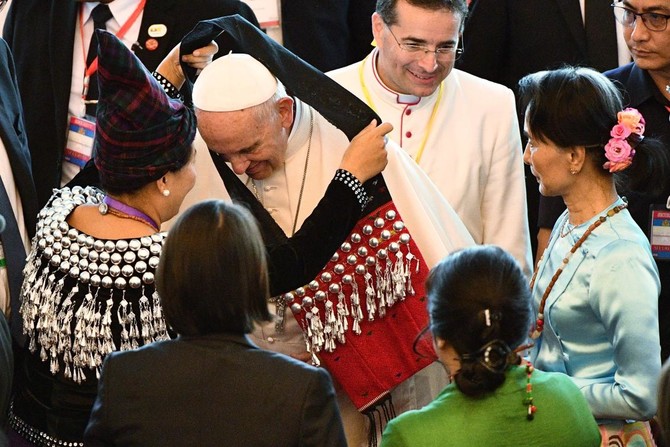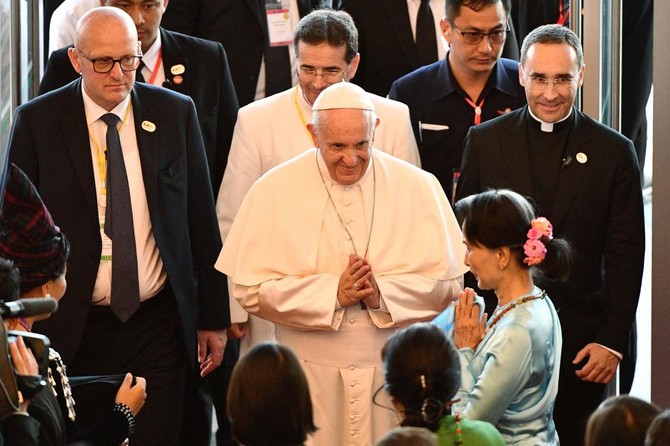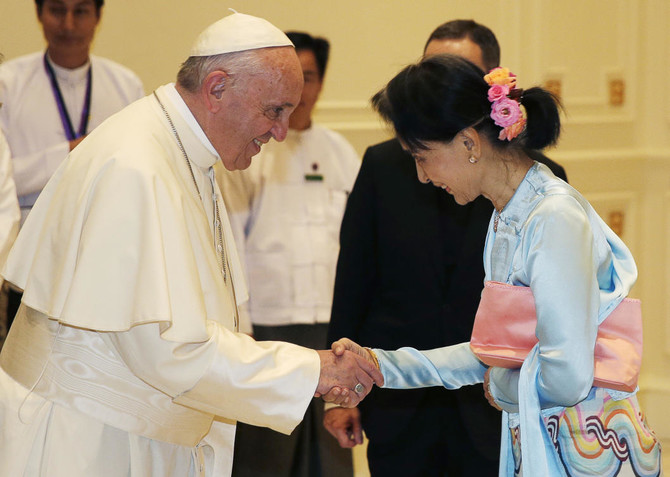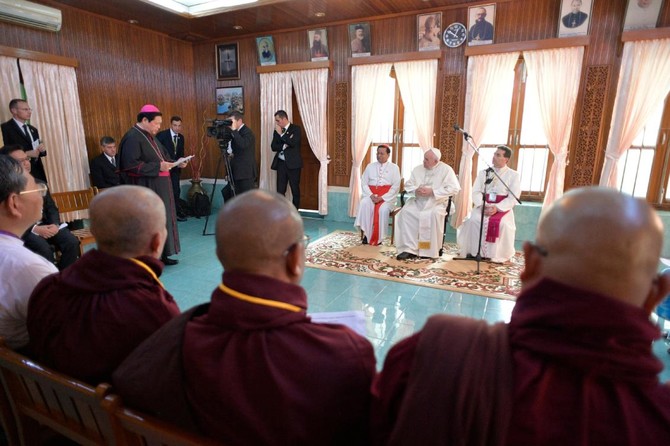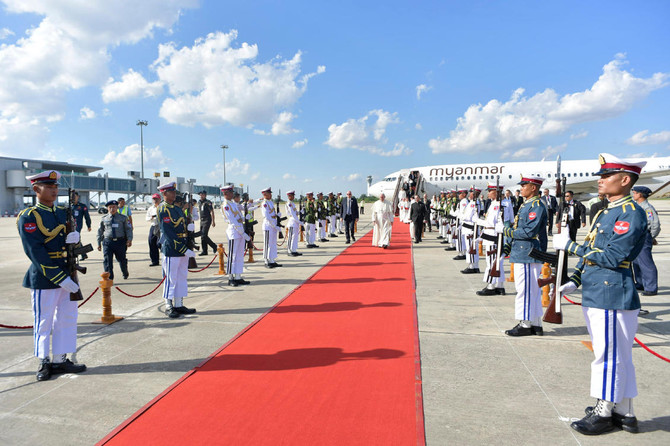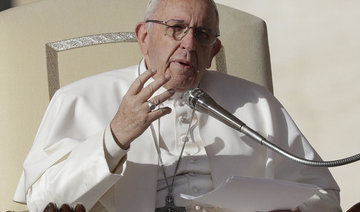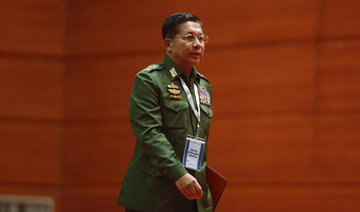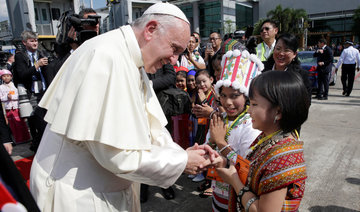NAYPYIDAW, Myanmar: Pope Francis held talks with Myanmar’s leader Aung San Suu Kyi on Tuesday, a pivotal moment in a visit aimed at alleviating religious and ethnic hatreds that have driven huge numbers of Muslim Rohingya from the country.
After meeting Suu Kyi in the capital Naypyidaw, the pontiff will deliver a keenly-awaited address — his first opportunity to speak publicly about a refugee crisis that hangs heavy over his four-day trip.
His words will be scrutinized for references to the “Rohingya,” an incendiary term in a mainly Buddhist country where the Muslim minority are denied citizenship and branded illegal “Bengali” immigrants.
Francis has repeatedly defended the group, some 620,000 of whom have fled to Bangladesh since August.
Suu Kyi, a Nobel Peace Prize winner, has been ostracized by a global rights community that once adored her but is now outraged at her tepid reaction to the plight of the Rohingya.
She is due to deliver remarks after the pope, who signed a guestbook at the presidential palace on Tuesday afternoon delivering “the divine blessings of justice, peace and unity” to Myanmar’s people.
The pope’s peace mission is studded with pitfalls in Myanmar, where a monk-led Buddhist nationalist movement has fostered widespread loathing for the Rohingya.
Late on Monday the 80-year-old pontiff received a “courtesy visit” from Myanmar’s powerful army chief — whose troops, according to the UN and US, have waged a campaign of ethnic cleansing against the Rohingya from Rakhine state.
Senior General Min Aung Hlaing has firmly denied allegations of widespread brutality by his forces, despite the flight of Rohingya who have recounted widespread cases of rape, murder and arson.
His office said he told the pope there was “no discrimination” in Myanmar, and feted his military for maintaining “the peace and stability of the country.”
Early Tuesday — day two of his visit — the pontiff met leaders from Buddhist, Muslim, Baptist and Jewish faiths in Yangon.
The conversation centered around themes of unity and diversity, with the pope sharing a prayer and giving a “very, very beautiful speech,” according to Sammy Samuels, a representative from the small Jewish community.
The Lady, as she is fondly known in Myanmar, finally came to power after elections in 2015 but has fallen from grace internationally for not doing more to stand up to the army in defense of the Rohingya — whose name she will not publicly utter.
Rights groups have clamored for Suu Kyi to be stripped of her peace prize. Oxford, the English city she once called home, on Monday removed her Freedom of the City award for her “inaction” in the face of oppression of the Rohingya.
Just days before the papal visit, Myanmar and Bangladesh signed a deal to start repatriating Rohingya refugees within two months.
But details of the agreement — including the use of temporary shelters for returnees, many of whose homes have been burned to the ground — raise questions for Rohingya fearful of returning without guarantees of basic rights.
Francis will travel on to Bangladesh on Thursday.
So far, the pontiff has received a warm welcome in Myanmar, whose Catholic community numbers just over one percent of the country’s 51 million people.
But some 200,000 Catholics are pouring into the commercial capital Yangon from all corners of the country ahead of a huge, open-air mass on Wednesday morning.
Zaw Sai, 52, from Kachin state, found space for himself and his family to camp out in a churchyard.
“We feel very pleased because we are from different ethnicities but are one in our religion,” he told AFP.



